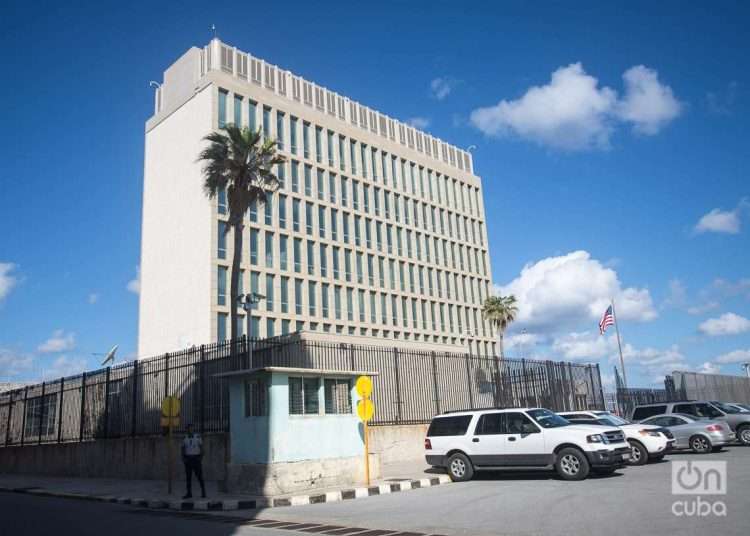The United States embassy in Havana warned this Thursday that “reports that the Cuban Family Reunification Parole (CFRP) program has been canceled are false.”
From its Twitter account, the diplomatic legation said that its offices “continue to process individuals through the CFRP program.”
It also reported that the “recently expanded parole program for Cuban, Haitian, Venezuelan and Nicaraguan citizens, announced earlier this month, is also still in effect.”
Regarding the existing confusion, perhaps generated by the outdatedness of its own website, it pointed out that the family parole (CP3), which “is a different program,” was suspended in 2017 and remains so.
The parole is a special type of admission to the United States, not a visa, even when the beneficiaries have this entry permit stamped in their passports, similar to a visa, pointed out the information available on the embassy website.
“The parole is a program that is executed at the discretion of the United States Citizenship and Immigration Services (USCIS), although the Consular Section is the one that performs most of the processing. Unlike immigrant visas, parole recipients do not enter the United States with Legal Permanent Resident (LPR) status.”
Created in 2007, the CFRP allows citizens and legal permanent residents of the United States to apply for parole for their relatives in Cuba. If granted, family members can enter the United States without having to wait for their immigrant visa cases to be processed according to the assigned quotas.
Cuban Family Parole, interrupted in 2017, remains suspended “indefinitely”
Also, the embassy announced this Friday from Twitter the approval of two new hospitals to carry out medical checkups for immigrant visas.
The expansion will ensure that more applicants can complete their tests before their consular interview, the tweet notes, without giving details about the healthcare centers.










